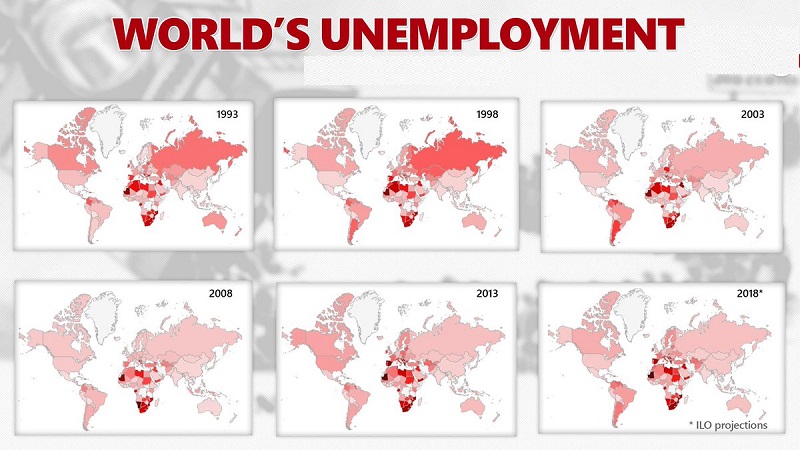UN: Global unemployment expected to worsen in 2024
The global unemployment rate is projected to experience a slight increase in 2024, according to the United Nations. An additional two million individuals are anticipated to enter the job market during this period, leading to a rise in the global unemployment rate to 5.2 percent.
The International Labour Organisation, a branch of the UN, expressed concerns in its World Employment and Social Outlook Trends report for 2024 about stagnant productivity, escalating inequalities, and the impact of inflation on disposable income.
The UN report further highlights a decline in disposable incomes across most G20 countries, emphasizing the slow compensation for the erosion of living standards caused by inflation.
Notably, significant disparities persist between higher and lower-income countries, with higher-income nations experiencing an 8.2 percent job gap rate in 2023 compared to a 20.5 percent rate in low-income countries. Additionally, the unemployment rate was 4.5 percent in high-income countries and 5.7 percent in low-income countries in 2023.
Furthermore, the report predicts the persistence of working poverty, with the number of workers living in extreme poverty (earning less than US$2.15 per person per day in purchasing power parity terms) increasing by approximately 1 million in 2023. Additionally, the number of workers living in moderate poverty (earning less than US$3.65 per day per person in PPP terms) rose by 8.4 million in 2023.
The study, which analyzes the latest labor market trends such as unemployment, job creation, labor force participation, and hours worked, links these trends to their social outcomes.
In response to the report, Gilbert Houngbo, Chief of the International Labour Organisation (ILO), acknowledged some encouraging data on growth and unemployment. However, he emphasized the growing imbalances in the labor market, eroding progress towards greater social justice in the face of multiple global crises.
Houngbo stressed the need for a coordinated and mutually reinforcing approach to address the complex challenges outlined in the report. He highlighted the importance of coordination at both national and multilateral levels, extending to the allocation of financial and technological resources.
A more effectively coordinated response, according to Houngbo, would contribute to achieving the UN Sustainable Development Goals and the commitments made at COP28, which for the first time included references to the significance of labor rights, social dialogue, social protection, and decent work in achieving a just transition.
